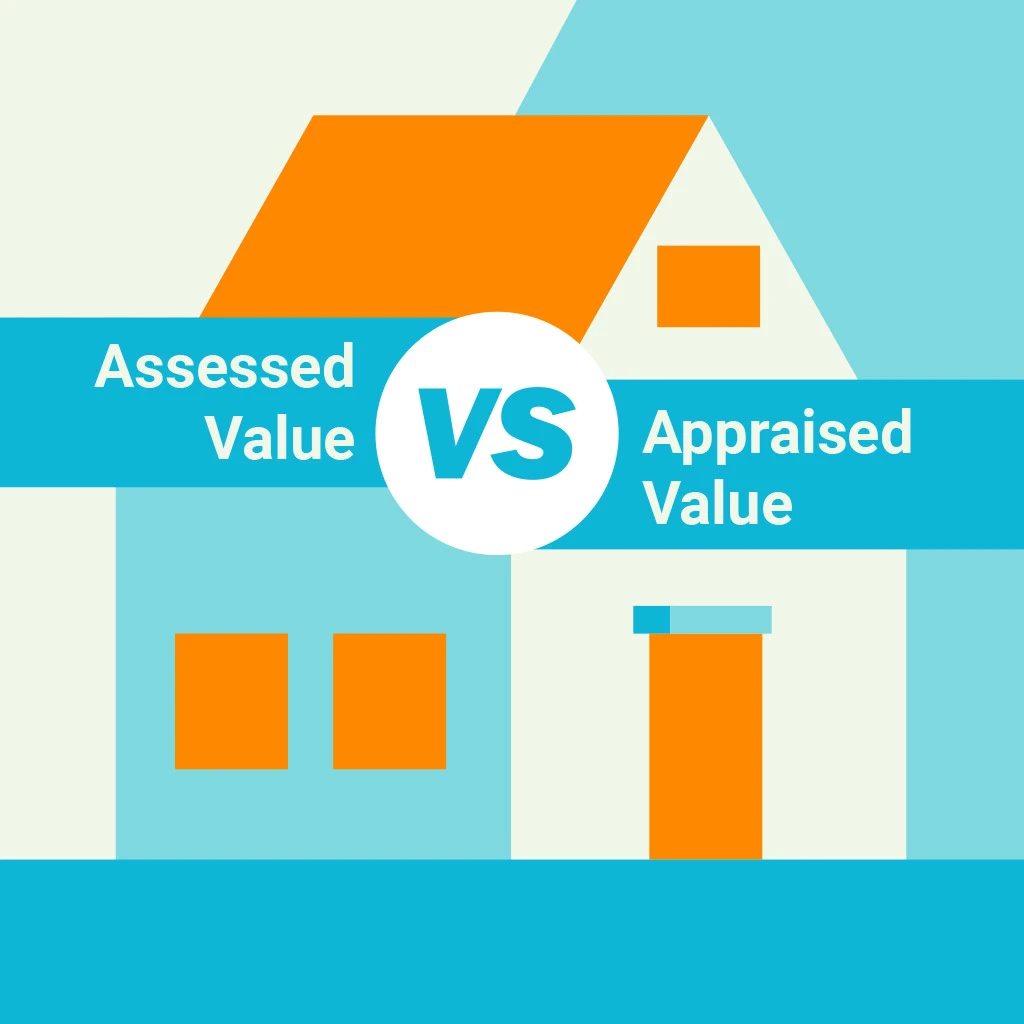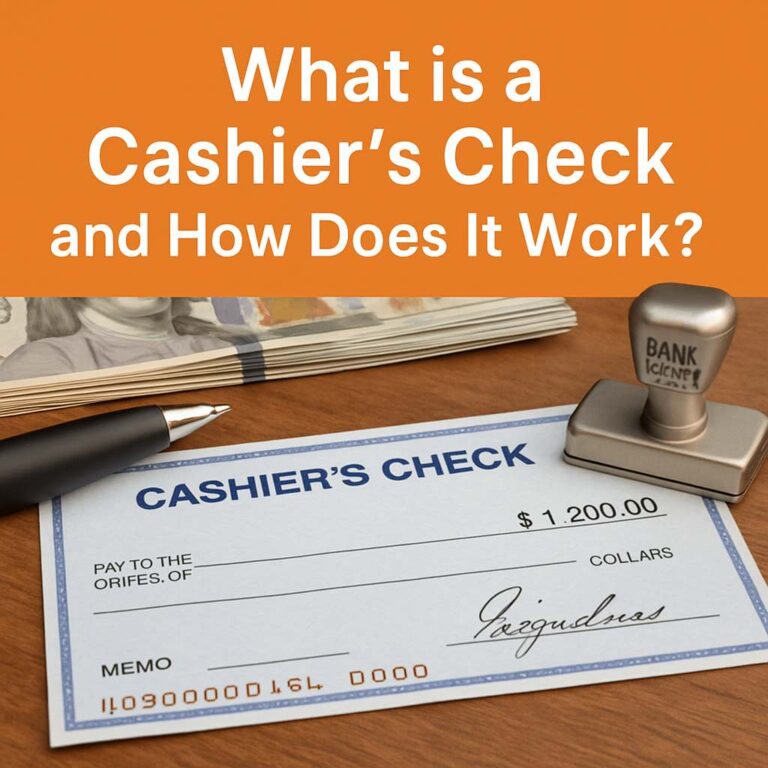In the intricate realm of property ownership and real estate investment, grasping the nuances of Assessed Value vs. Appraised Value is fundamental. Homeowners, investors, and real estate enthusiasts often encounter these terms, which, despite their apparent similarity, have distinct roles and derivation processes in property valuation. This exploration into the subtleties of property valuation aims to shed light on their unique functions, providing essential insights for those navigating the ever-evolving real estate landscape.
The journey through the world of property valuation, marked by terms like Assessed Value vs. Appraised Value, can be complex and multi-layered. This article serves as a guide, offering a detailed examination of how these valuations differ and how they affect your decisions and obligations as a property owner or investor. Join us in uncovering the critical distinctions that shape the understanding and management of real estate assets.

What is an Assessed Value?
When we talk about a property’s assessed value, we refer to the value assigned by local government authorities to determine property taxes. This valuation doesn’t directly represent the property’s current market price but serves as a benchmark for tax calculation.
Determining this value involves a local assessor evaluating various aspects of your property. The evaluation criteria include the property’s physical attributes, such as the land’s size, the house’s dimensions, and any additional amenities it might have. Also, the location plays a significant role – properties in more desirable areas might be assessed at higher values.
Moreover, the assessor looks at the recent sale prices of comparable nearby properties. This comparative approach ensures that the assessed value is aligned, to some extent, with the real estate market trends in the area, although it may be a different match.
The impact of this assessed value becomes evident in the calculation of property taxes. For instance, if a local authority assesses your home at a certain value and applies a specific tax rate, your annual property taxes are calculated based on this formula. Suppose your home is assessed at $300,000, and the tax rate is 2.5%. Your annual property tax would be $7,500.
It’s also important to note that some jurisdictions offer exemptions or deductions that can reduce the taxable value of your property. These exemptions might be based on factors such as the property being your primary residence or a portion of the property’s value being exempt from taxation.
If you feel that your property’s assessed value does not reflect its true worth or is unfairly high, there is usually an avenue to appeal against this assessment. This process typically involves requesting a reassessment from the local assessor’s office, where they might revisit and re-evaluate your property. It’s a vital tool for homeowners to ensure fair taxation based on a reasonable and current property value assessment.

What is an Appraised Value?
The appraised value of a property is the estimation of its current market worth, determined by a professional appraiser. This valuation is a crucial component in real estate transactions, particularly in the buying, selling, and refinancing of homes. The appraised value gives an objective opinion on the worth of a property at a specific point in time.
Appraisers, who are often licensed professionals, conduct a thorough examination of the property to determine its value. This examination includes a variety of factors such as the home’s size, the number of rooms, parking lot, location, and especially the condition and upkeep of the home.
An essential part of the appraisal process is comparing the subject property to similar homes in the recently sold area. This comparative market analysis helps gauge the property’s value in the current market conditions.
One of the most common instances when a property appraisal is necessary is during the mortgage application process. Lenders require an appraisal to ensure the property’s value matches its lending amount. This is a safety measure for the lender to confirm that the property provides adequate collateral for the loan.
For instance, if a buyer is seeking a loan of $350,000 for a property, but it appraises for only $325,000, the lender might be at risk. This scenario creates an appraisal gap, often requiring renegotiation or additional cash from the buyer to proceed with the loan.
Apart from lender-required appraisals, homeowners and buyers may opt for appraisals for their purposes. A buyer might seek an appraisal to ensure they pay a fair price for the property. Conversely, sellers might commission an appraisal before listing their property for sale (a pre-listing appraisal) to set a realistic and competitive asking price.

Appraisal Vs. Assessment: What’s the Difference?
While both appraisals and assessments are related to property value, they serve different purposes, are conducted differently, and have distinct impacts on property transactions and taxation. Understanding these differences is crucial for homeowners, buyers, and sellers in navigating real estate decisions and financial planning.
Purpose
- Appraisal: An appraisal’s primary purpose is to determine a property’s current market value. Appraisals are usually required for a property sale, purchase, or refinancing.
- Assessment: On the other hand, an assessment establishes a property’s value for taxation purposes. The assessed value is used to calculate property taxes.
Methodology
- Appraisal: Appraisals are conducted by licensed professionals who thoroughly examine the property. This includes analyzing the condition, size, and amenities of the home and comparing it to similar recently sold properties in the area.
- Assessment: Assessments are usually carried out by a local government assessor. This process involves evaluating the property based on factors like size, location, and certain amenities. Still, it is less detailed than an appraisal and more focused on generating value for tax purposes.
Frequency and Timing
- Appraisal: Appraisals are typically conducted at a specific point in time, usually when a property is being bought, sold, or refinanced. It reflects the current market conditions at the time of the appraisal.
- Assessment: Assessments are performed periodically (often annually) by tax authorities. The assessed value may not always reflect current market conditions as it is not updated as frequently as appraised values.
Impact
- Appraisal: The appraised value is crucial for financing; it affects mortgage approvals and refinancing options and can influence the sale price in real estate transactions.
- Assessment: The assessed value directly impacts the amount of property taxes a homeowner is required to pay. It has less to do with the property’s actual sale or purchase price.
Appeal Process
- Appraisal: While the appraised value is a professional estimate, it’s not typically subject to appeal by the property owner. However, discrepancies can lead to renegotiations in a sale or refinancing scenario.
- Assessment: Property owners can appeal the assessed value if they believe it is unfair or inaccurate. This appeal can lead to a reassessment and potentially lower property taxes.

How Do Appraisals Work? How Does an Appraiser Evaluate Your Property?
Appraisals are vital in real estate transactions, objectively assessing a property’s market value. Understanding how appraisals work and what factors an appraiser considers can demystify this crucial step, especially for homeowners and potential buyers. Here’s a closer look at the appraisal process:
The Appraisal Process
The first step in an appraisal is the physical inspection of the property. The appraiser visits the property to assess its condition and gather information about its features. This includes noting the size, layout, number, and types of rooms and any unique attributes or improvements.
The appraiser conducts a comparative market analysis (CMA). In the process, they compare the subject property to similar properties, often called ‘comps,’ in the area recently sold. This comparison helps to understand how the property stacks up against others in terms of price and features.
In addition to the physical characteristics and comparables, appraisers consider a range of factors that might affect the property’s value. These include the property’s location, the quality of local schools, current market trends, and any external factors like noise levels or proximity to amenities.
After combining all this information, the appraiser compiles a final appraisal report. This report provides a detailed analysis of how the appraiser arrived at the property’s value. It includes observations about the property, the data from the comparables used, and the rationale behind the final valuation.
Role of Appraisers in the Process
Appraisers are trained professionals who provide an unbiased opinion on the value of a property. They operate independently from lenders and buyers to ensure an objective evaluation. Their expertise in understanding market trends and evaluating property features is crucial in determining a fair market value.
Importance of Appraisals
- For Buyers and Lenders: Appraisals are essential for buyers and lenders as they ensure the property is worth the investment. Lenders, in particular, rely on appraisals to confirm that they’re not lending more money than the property is worth.
- For Sellers: For sellers, an appraisal can offer insights into the true value of their property, helping them set a realistic selling price. It can also highlight areas for improvement that might increase the property’s value.

How Do Assessments Work? How Do Appraised Value Vs. Assessed Value Compare?
Understanding how property assessments work and differ from appraisals is essential for any homeowner or potential property buyer. Assessments are primarily used for tax purposes, while appraisals are generally used to determine the market value of a property in the context of a sale or refinance.
The Assessment Process
Annual Valuation: Unlike appraisals, assessments are typically done annually. A government tax assessor assigns a value to your property each year, which is the basis for calculating your property taxes.
The local tax authority employs assessors who review your property’s data and may visit your home. They examine various aspects of your property, similar to an appraisal, but with a focus on determining a value for tax purposes.
Assessors consider historical property data, findings from any home inspections, and comparative market analysis. However, they also might consider the property’s appraised value, fair market value, and any improvements made.
The key objective of a property assessment is to establish a value for calculating property taxes. These taxes fund local public services and infrastructure.
Comparison of Appraised Value and Assessed Value
Understanding the differences between appraised and assessed value is a cornerstone in grasping real estate dynamics. These two valuations, though related to the worth of a property, differ significantly in their purpose, calculation, and impact on property owners.
- Basis of Valuation: While appraisals aim to determine the current market value of a property, assessments are focused on its value for tax purposes. This difference in objective can lead to different valuations.
- Frequency and Timing: Appraisals are usually performed at specific times, like during a sale, purchase, or refinancing. Assessments, however, are done annually, which may not always reflect the current market conditions.
- Value Differences: The assessed value is often lower than the appraised value. This is because assessments are not solely market-driven but also consider the needs and budgetary requirements of the local government.
- Use of Values: The appraised value is critical for real estate transactions and loan considerations. In contrast, the assessed value directly affects the amount of property taxes a homeowner is obligated to pay.
- Regional Variations: The standards and methods for tax assessment can vary significantly by region, leading to differences in how properties are assessed in different areas.

Final Words
The key differences in Assessed Value vs. Appraised Value play pivotal roles in various aspects of property ownership and transactions. While both values may seem similar at a glance, they serve distinct purposes and have different implications for property owners, buyers, and sellers. A deep understanding of these concepts enables you to make more informed decisions and confidently navigate the complexities of the real estate market.
Eager to delve deeper into the world of real estate and property valuation? Visit the EduCounting blog for comprehensive insights on the nuances of property valuation and beyond. Whether you’re a seasoned investor, a first-time homebuyer, or simply looking to broaden your financial literacy, EduCounting has the resources to support your journey. Join us today and transform your financial future!
FAQs
Is assessed value close to market value?
Not necessarily. The assessed value is often lower than the market value as it is primarily used for tax purposes and may not be updated as frequently as appraised values. It also takes into account factors beyond just the current market conditions.
How much does an appraisal cost?
The cost of an appraisal can vary, but it typically ranges from a few hundred to several thousand dollars, depending on the property’s location, size, and complexity.
Can you negotiate an appraisal price?
Generally, the appraisal price is not negotiable as professional appraisers set it based on the complexity of the evaluation and the prevailing rates in the industry.
Is appraisal usually higher than the sale price?
Not always. An appraisal aims to estimate the property’s current market value, which can be higher, lower, or similar to the sale price, depending on market conditions and the individual property’s characteristics.








